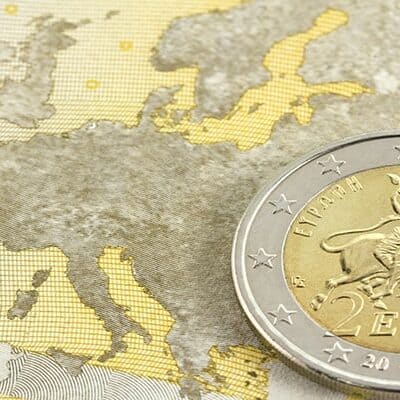More than just a comfortable feeling, we continually rely on our ability to tell fact from fiction. Discernment underpins many business decisions that lead to success or failure. Markets move on what people believe is going to happen or, as we have seen in much of the meme stock and crypto currency falderal, a loosely coordinated frenzy of limited cooperation. Those who showed up to the party late were not winners. Confidence in the value of these somewhat intangible assets can be misplaced. The durability of certain exchanges –– and many are going bankrupt –– is less than or equal to the life expectancy of some young billionaires.
“The dynamics of trust are delicate in important relationships, and the loss of trust can be costly — not only psychologically, but also financially and in terms of work and livelihood. What’s helpful to remember is that trust is an ongoing exchange between people and is not static.” Dennis Jaffe, The Essential Importance Of Trust: How To Build It Or Restore It
Where is trust more valuable than our personal relationships? It is the key to happiness. We need dependably predictable behavior from those closest to us as a foundation to plan the rest of life around. One author stresses the importance of what may be considered trivial inconsistencies:
“So if you are looking to increase trust within your relationship, it’s imperative that you stop saying things that you won’t follow through on, or that don’t represent your actual feelings. Even what seem like minor lies, when chronic, will tell the other person that they should no longer trust the things that come out of your mouth.” Andrea Bonior Ph.D, Psychology Today
Empty threats or a broken promise still impact the perception of reliability, though possibly over something unimportant in and of itself. This is equally applicable to business, media, and government. No business relishes having to re-evaluate their essential relationships for a lack of confidence in performance. It takes time and energy that could be spent more productively.
For instance, the last issue of 21st Century Watch magazine was delayed over a month at the printer. Paper supplies have become increasingly hard to come by as major manufacturers have switched to producing cardboard, accommodating the boom in online shopping and shipping. While the lack of paper is not exactly the printer’s fault, the delay would be unacceptable if it were the norm. Even this single instance led to conversations about “Plan B” over what has otherwise been a perfectly satisfactory relationship.
Media and government showcase this issue of reliability on a larger scale. Bias, both real and perceived, has had a horrendous effect on credibility in general. We have adapted to the point that assuming some level of partiality (and which way it flows) is a normal part of gathering information. Incessant clamoring about fake news and misinformation have left little room for trust, and rightly so when you consider the frequent differences between what happens and what is said about what happens.
“The challenge of course is that we have entered an era of declining trust (though to varying degrees) in government and institutions of all types and across most nations. As has been widely documented, this poses serious challenges to those of us seeking to engage communities in an effective discussion, decision-making and participation processes.” Penn State, The Role and Importance of Building Trust
When statements and facts are constantly exaggerated, minimized, or otherwise twisted to suit the agenda of the presenter, can we really be confident that we have received the whole truth? Of course not. And the reaction to this created atmosphere of distrust has been even more detrimental.
Two of the most controversial issues of recent years illustrate this issue. Vaccination is one. Somehow it degenerated to a screaming match between “toxic poison” and “miracle cure” crowds. The “safe and effective” mantra became the only publicly avowable opinion with the occasional caveat for individual liberty. Control of the conversation became very heavy handed.
Side effects are a risk with any medicine, which is why manufacturers are required to list them on packaging and in advertisements. Yet the atmosphere around this issue was so charged that even the sharing of personal experiences was censored online. Does that create trust? Rather, the opposite. It creates the question, “If there is nothing to hide, why can’t it be discussed?” Both extremes anticipate dire consequences from following the opposing viewpoint. Won’t the truth assert itself in time?
Elections have also been treated authoritatively. It will be a problem in any nation where the majority of people cease to believe they are legitimate. History and current events show us this plainly enough. Many African nations have suffered with contested elections, uprisings, and military coups since gaining independence. Angola is in turmoil at this writing. Elections in the former Soviet Bloc were notorious. Any pretense of choice in a “one-party” system would be humorous if it weren’t tragic.
Brazil is unsettled right now as well. What has transpired in the United States will be familiar enough to most readers. In order to restore trust in the system, they refuse to discuss even potential flaws. Maybe that’s why less than 50% of eligible people vote, according to statistics from the Washington Post’s 2022 election reporting. Belief in some level of corruption is practically universal. The world has never been short of politicians disgraced for padding their pockets. When public sentiment reaches critical mass “heads will roll,” as they say in France.
The government of ancient Israel was a Theocracy that was supposed to be ordered around the law of God. The hereditary High Priest had an executive type role. The Levites maintained the civil structure around the country. In 1 Samuel chapter 2 you can read the nefarious dealings of the sons of Eli. Verse 17 says, “Wherefore the sin of the young men was very great before the LORD: for men abhorred the offering of the LORD.”
Their behavior undermined the role of the priesthood. Samuel is called the last judge and the first prophet. He anointed both Saul and David to be King at God’s direction. The avarice of his own sons in their official duties led directly to the people demanding a king.
“And it came to pass, when Samuel was old, that he made his sons judges over Israel. Now the name of his firstborn was Joel; and the name of his second, Abiah: they were Judges in Beersheba. And his sons walked not in his ways, but turned aside after lucre, and took bribes, and perverted judgment. Then all the elders of Israel gathered themselves together, and came to Samuel unto Ramah, And said unto him, Behold, thou art old, and thy sons walk not in thy ways: now make us a king to judge us like all the nations” (1 Samuel 8:1-5).
The nation could have turned back to the Priesthood for leadership, but they demanded a new institution, one they thought they could trust. What is obvious is that all governmental structures perish after periods of flaunting the basics of God’s covenant. Aren’t our current scandals all about lying, stealing, killing, and every flavor of covetousness?
Trust begins on a personal level. It is amplified through every friend, family, job, and judge throughout society. It is easy to lose and hard to rebuild. Faith is trust in God Almighty and the truth of His ultimate providence. It supersedes every other trial and betrayal. John chapter 18 tells of Jesus being brought before Pilate. When Jesus was asked if He was a king, He replied that it was to this end He was born and that He came to bear witness to the truth. Pilate asked a question that many struggle with, “What is truth?” Yet even he acknowledged the innocence of Christ.
Jesus Christ lived the truth in perfection. He will reign in the same manner when the time comes. He will return when mankind has finally demonstrated their inability to govern themselves on every level and brought all life to the brink of extinction. Until then, there is still time to get it right.
When God was calling out to Israel for reconciliation in Malachi chapter 3, He invited them to prove Him; to test and see His faithfulness. He enumerated their sufferings and they are the exact same betrayals we are sick with today. He invited them to return, to cease oppressing one another and be people worthy of trust. The same offer is open to us all still, and accepting it would save a world of trouble.










